© 2026 ALLCITY Network Inc.
All rights reserved.

Following consecutive losing seasons with a core that has gone stagnant after postseasons in 2017-18, the Colorado Rockies are at a definite crossroads when it comes to their roster.
Between signing Daniel Murphy as the only significant free agent acquisition during the last two offseasons – then witnessing DJ LeMahieu flourish for another team on an identical contract – and pulling the plug on the $106M fiasco that was the “Super Bullpen,” it begs the question as to what the Rockies should do next.
Nolan Arenado, the greatest player in team history, can opt out of his remaining five-year, $164M contract after next year and trading him is an option that signals the end of the era for not only him but the entire organization.
Trevor Story and Jon Gray are in the final season of club control and could be off to new destinations in free agency; or, once again, the option to make a deal with another team could inject new life into the roster.
In the American League Championship Series, two incredibly different clubs have made it to the penultimate round of the postseason thanks to unique blueprints that have been proven successful long beyond just 2020.
Perhaps owner Dick Monfort and GM Jeff Bridich will take notice at the talents for the Houston Astros and Tampa Bay Rays, consider the direction those clubs took at their crossroads and shift the organizational philosophy to acquire such talented rosters of its own.
Houston Astros
After an embarrasing 2011 season that saw the worst record in team history, Houston looked within their division for a new General Manager.
Insert Jeff Luhnow of the St. Louis Cardinals, who had just won the World Series (steal from the best, right?) thanks to a homegrown roster developed through his exact area of expertise.
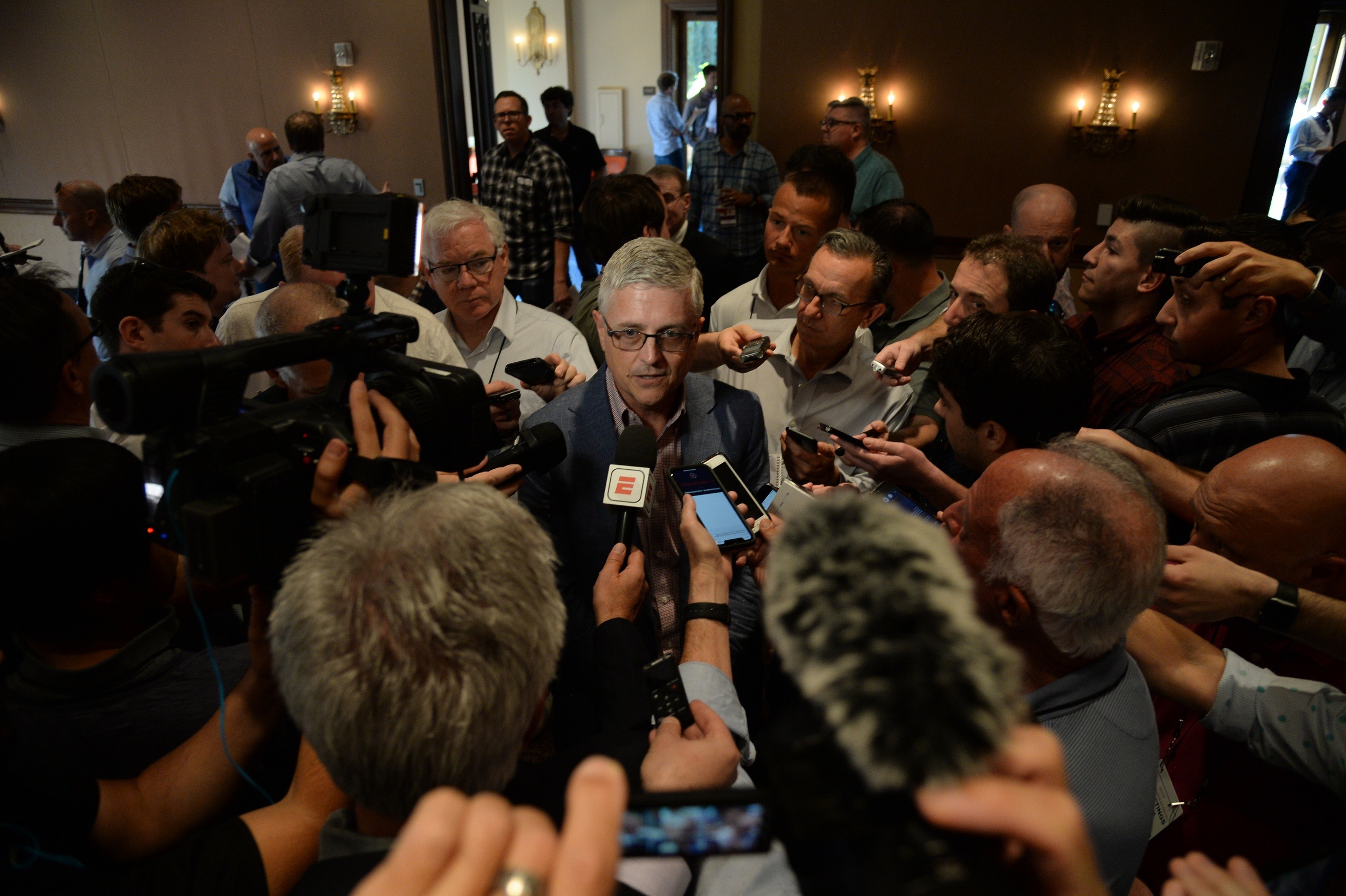
Luhnow embraced the “lose now” methodology better than anyone, losing 100 games for three consecutive seasons that seemed just a blink after losing the 2005 World Series.
With over 400 losses in four seasons, Houston held the first overall pick in the MLB Draft for three straight years. In addition, they had the added benefit of gigantic bonus pool that allowed for clever negotiations to secure not only high-end talent, but to convince high schoolers from going to college and go over-slot money to pay deepen their quality of prospects.
It was a brazen strategy.
Coincidentally, Theo Epstein and the Chicago Cubs were employing the same philosophy at the same time, only to much quicker results and with only one 100-loss season.
Even Sports Illustrated christened the Astros as the inevitable 2017 World Series Champion in the midst of their debaucherous last-place run.
The ability to hit the reset button on an entire franchise may have been painful for the fanbase during 2011-2014, but it is one that still reaps rewards for the entire organization.
The sign-stealing scandal will forever be an asterisk on their championship and multiple postseasons successes. However, it’s undeniable that the talent probably would have gotten them there without it.
Homegrown: 15 players (9 via MLB Draft; 6 amateur free agents)
Had Houston not lifted a finger in free agency or swung any trades during entirety of Luhnow’s tenure, one could make the case that they’d still have had five postseason appearance in the last six years and even one World Series.
Besides loading up on future All-Stars through the MLB Draft such as OF George Springer (11th overall, 2011), SS Carlos Correa (1st overall, 2012), and 3B Alex Bregman (2nd, 2016), the Astros have been successful in Latin America, developing starting pitchers LHP Framber Valdéz and RHP José Urquidy.
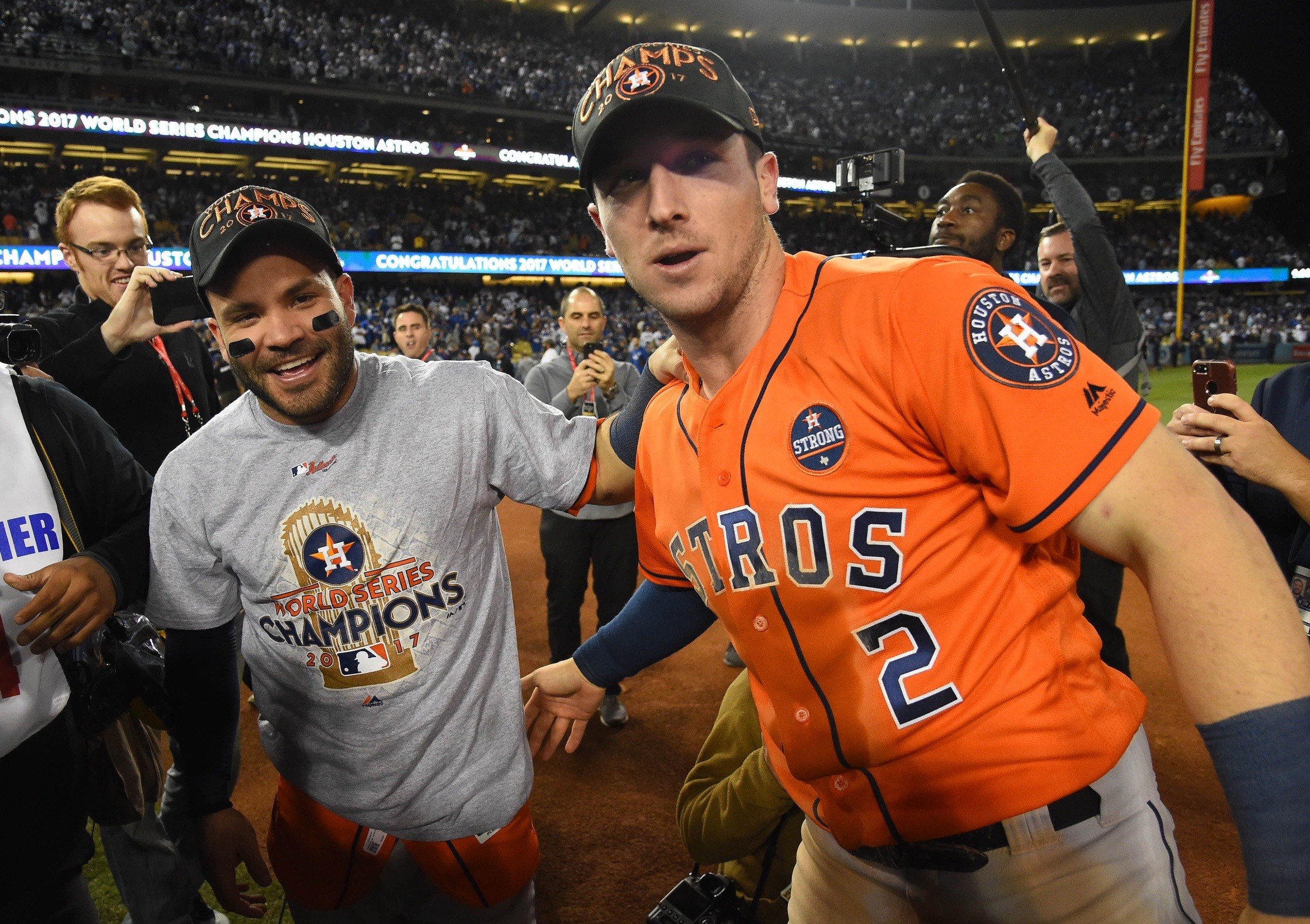
Supplemental talents such as OF Delino DeShields (TEX, 2015) and RHP Elieser Hernández (MIA, 2018) have been plucked from out their system via the Rule 5 Draft before two more players were taken in 2019 to contribute on the big league level this season: RHP Yohan Ramírez (SEA) and IF Jonathan Araúz (BOS).
Trade: 8 (5 in-season, 3 offseason)
Houston’s Injured List is littered with several notable names all acquired thanks to one of baseball’s best farm systems of the past decade. Justin Verlander, Roberto Osuna, and Yordan Álvarez (for RHP Josh Fields, remember him?) are just a few that have continued the fill needs for the club in recent years.
Throw in Gerrit Cole a few seasons prior and ALCS Game 4 starter Zack Greinke and it’s three potential Hall of Famers acquired for prospects.
And it hasn’t just been obvious win-now trades either. Three active relievers (Cy Sneed, Andre Scrubb, and Blake Taylor), not to mention Álvarez, were all acquired before making their big league debut.
Current closer Ryan Pressly was pried from Minnesota for Houston’s 8th and 20th best prospects, per Baseball America, then became a first-time All-Star at age 30 before being locked up to a club-friendly extension that further belabors why the Astros are playing chess while the many in the game are still learning the rules of jacks.
Free Agency: 4
Michael Brantley (two-years, $32M) and Josh Reddick (four-years, $52M) have earned their pay as corner outfielders with Springer patrolling centerfield. All three will be free agents following the end of the postseason and at least one will need to return as Kyle Tucker is poised to be teams next outfield star.
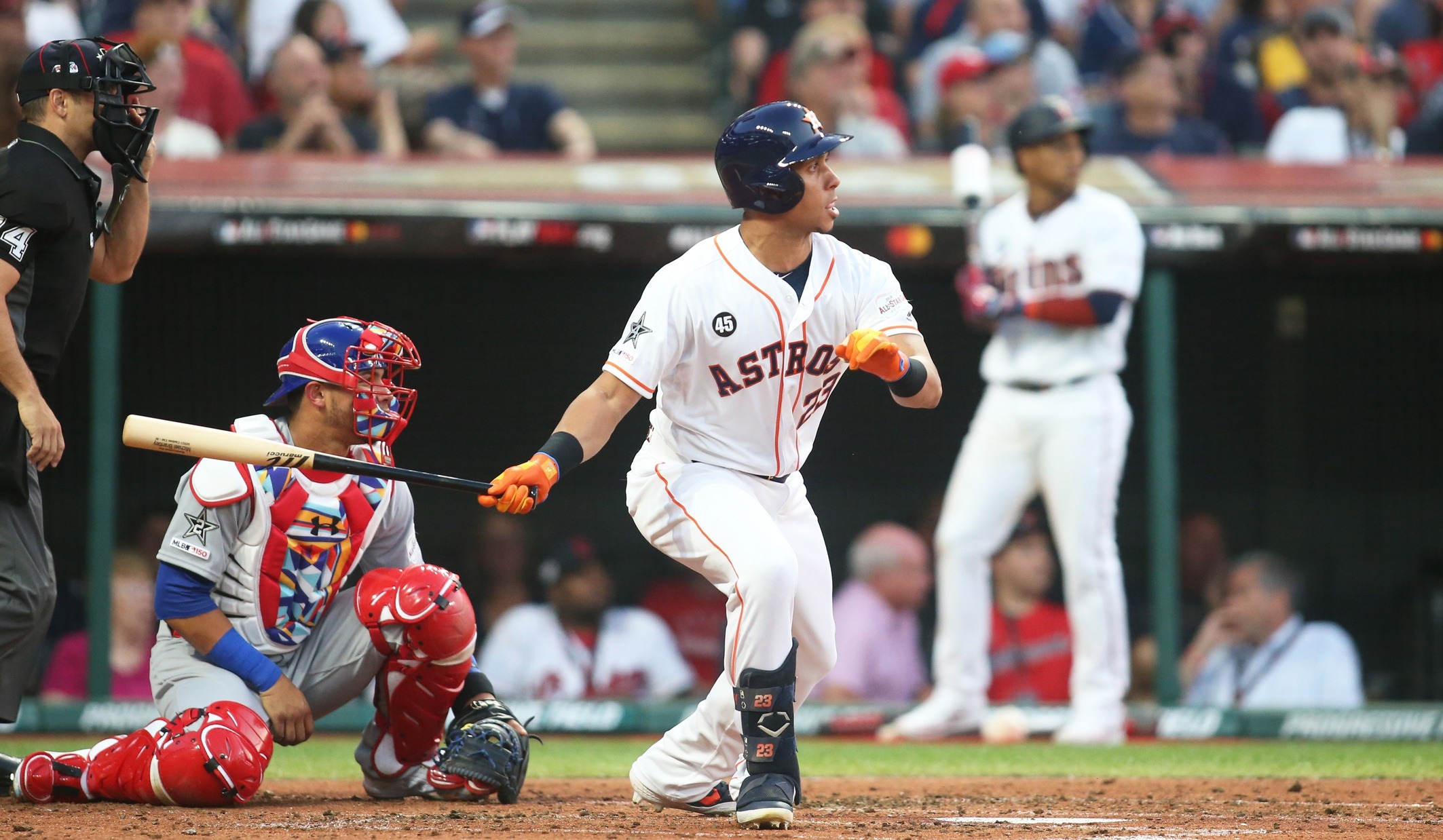
Former Rockies’ backstop Dustin Garneau never clicked in Colorado and even after jumping teams for the past four seasons making no more than 82 plate appearances in any one stop, the 2019 American League Champs saw enough to give him a guaranteed deal this past offseason.
Chase De Jong, who was activated for the ALCS, represents the last of this quartet. Signed out of the ambitious and independent Constellation Energy League in Sugar Land, TX, he will not be counted on do much for Houston in this series.
International Free Agency: 1
The Cuban first baseman Yuli Gurriel signed a hefty five-year, $47.5M deal after defecting with his brother Lourdes Gurriel Jr. (TOR) during the Caribbean Series in the Dominican Republic. He had a poor 2020, but took a pay cut to resign on an incentive-laden, one-year deal.
Tampa Bay Rays
The franchise soon to be known as the Montréal Rays have taken Billy Beane’s Moneyball to a whole ‘nother level.
Thanks in part to a front office of some of the greatest young minds in the game, Tampa continues to outwit and outplay competition with a roster of players most fans couldn’t pick out of a police lineup or starting lineup.
Combining a brave influx of analytics that has led to the creation of the opener, the Rays have taken the game’s 28th-highest payroll in 2020 to within one win of the franchise’s second World Series.
Behind the second-youngest GM in baseball, Eric Neander has assembled a hodgepodge of relative unknowns through crafty trades that helped make for the best record in the American League.
Even before Neander took the reigns as GM in November 2016, Tampa Bay was in great hands with Matthew Silverman, now Team President, and Chaim Bloom, now Chief Baseball Operator of the Boston Red Sox, as Vice President of Baseball Operations.
Looking further down the executive tree, at its base, is current Los Angeles Dodgers’ President of Baseball Operations, Andrew Friedman.
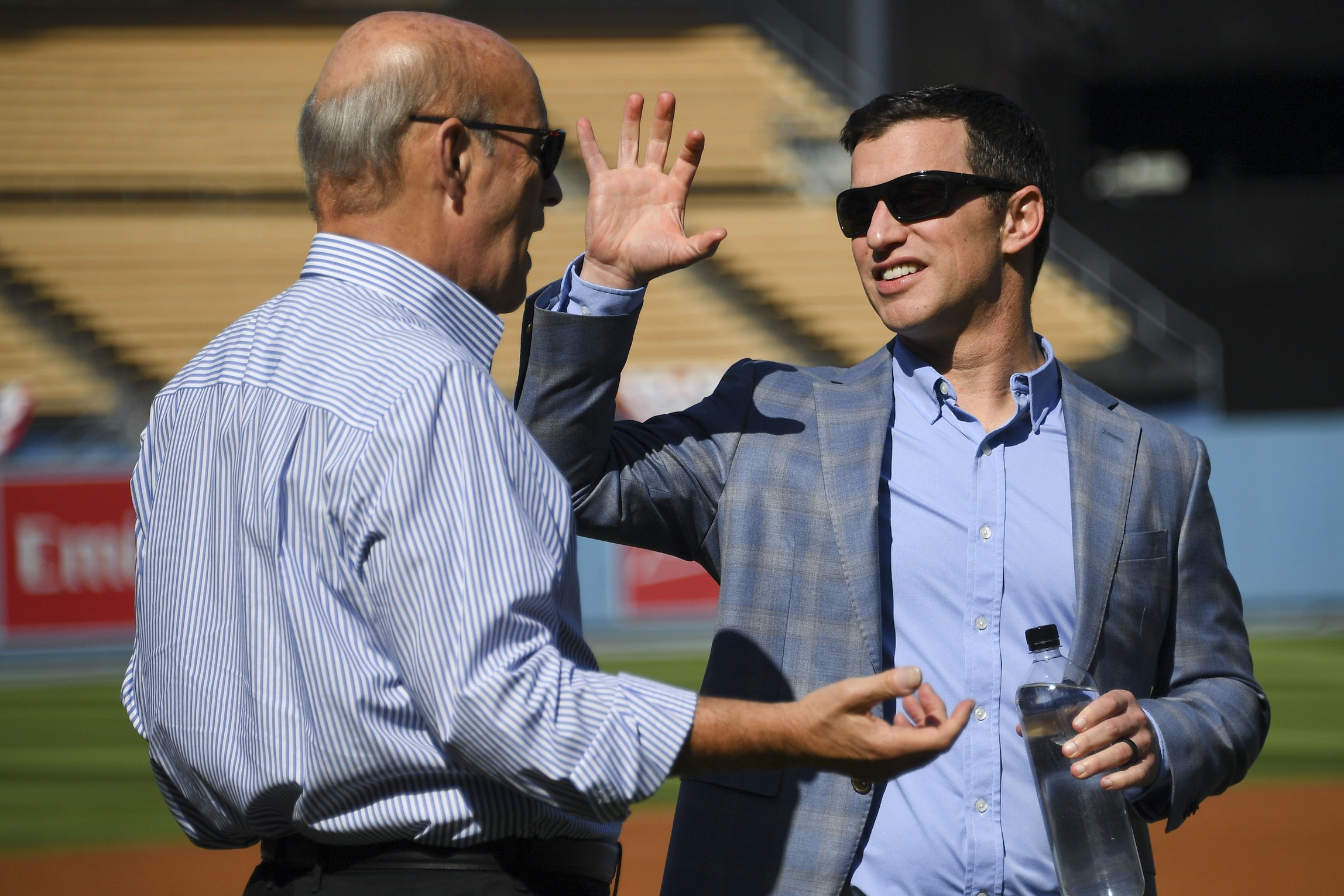
Hired at 28-year-old by Rays’ principal owner Stuart Sternberg following losing seasons in all eight years of the teams existence, Friedman took three seasons to life the organization to its first winning season and World Series appearance.
Throw in three more postseason births in four years and the Dodgers had the man that would help lead them to eight consecutive NL West pennants with no end in sight.
Left behind, however, were a cabinet of executives capable of picking up right where he left off.
And maybe going one step beyond.
Homegrown: 8 (5 via MLB Draft; 1 undrafted free agent, 2 amateur free agents)
The Rays have had success all throughout the draft on this roster: high-end selections like first rounder LHP Blake Snell (2011) and third rounder 2B Brandon Lowe (2015); late surprises such as OF Kevin Kiermaier (31st round, 2010) and player pool first baseman Nate Lowe (13th round, 2016).
Perhaps the most impactful homegrown player was never even selected.
Undrafted and undersized IF Mike Brosseau hit perhaps the biggest home runs in club history with his eighth-inning solo shot off Yankees’ closer Aroldis Chapman to close out the winner-take-all Game 5 of the ALDS.
With an immensely hyped group of prospects still waiting in the wings, Tampa Bay has an opportunity to put together a series of postseason appearances for years to come in the incredibly challenging AL East.
Trade: 14
You’re not seeing things. Half the players on the Rays ALCS roster came via trade, including seven in the Game 3 starting lineup. (Even starting pitcher LHP Ryan Yarborough was thanks to an offseason deal.)
Two key components – RHP Tyler Glasnow and OF Austin Meadows – came in the same head-scratching swap for RHP Chris Archer. (Sorry, no take-backs, Pittsburgh.)
And the darling on the 2020 MLB Postseason so far, OF Randy Arozarena, came in daring deal that cost Tampa one of their top pitching prospects.
Free Agency: 3
Miraculously, this club spent little more than $24M on free agents, most of which went to their Game Two starting pitcher.
By signing of Houston’s 2017 World Series hero RHP Charlie Morton for two-years at $30M, the 90-win Rays signaled a turning point following the 2018 season.
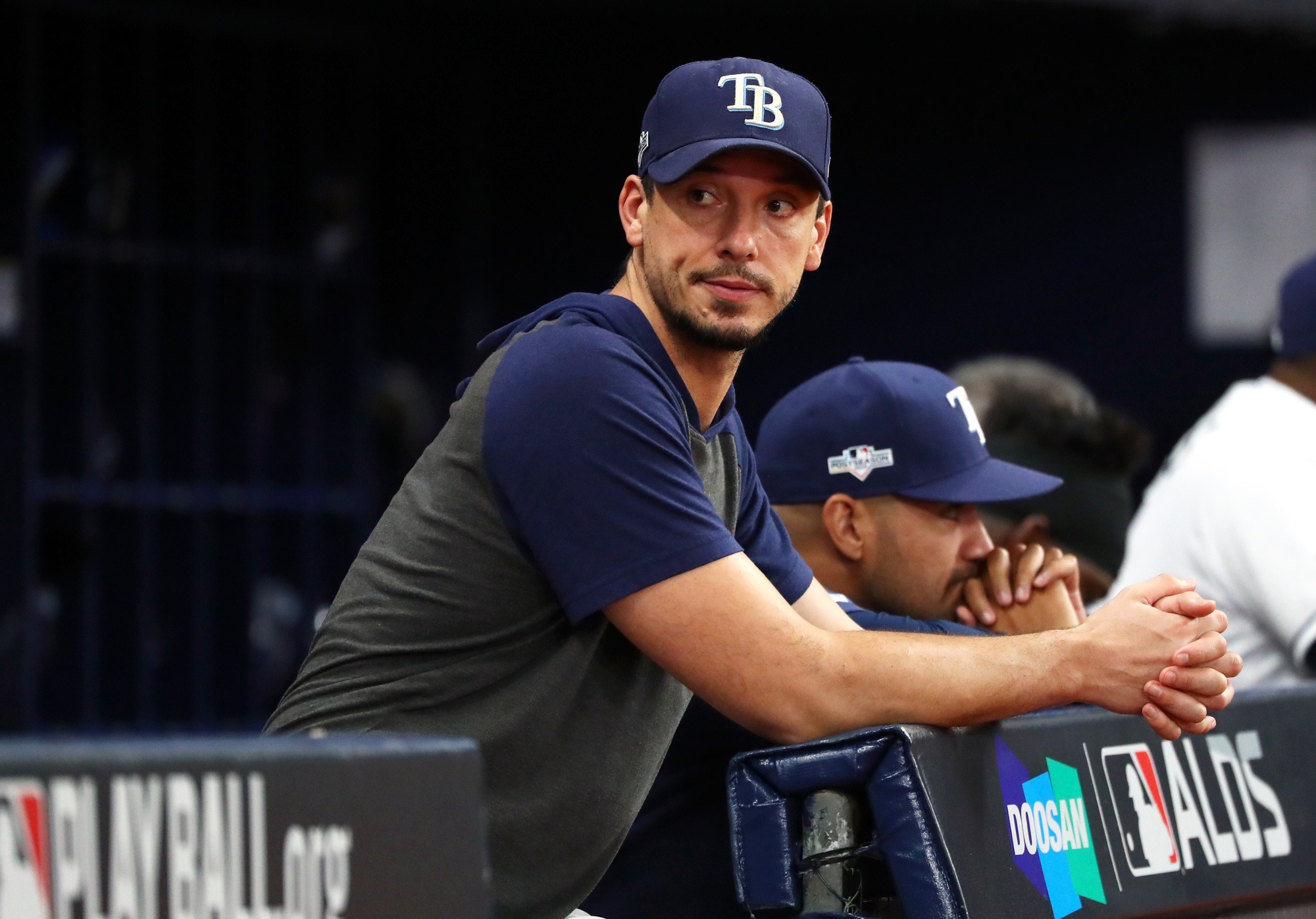
LHP Aaron Loup and RHP John Curtiss were both minor league invites that battled their way into the great, but unheralded bullpen for 25 innings each in the shortened 2020 season.
International Free Agency: 1
The 28-year-old third baseman from Japan with abilities to play corner outfield did well to compete during his first season outside of Nippon Professional Baseball. At two-years, $12M, Rays will hope Yoshi Tsutsugo will add more contact (.197 batting average) with his above-average power (8 home runs in 42 starts).
Rule 5 Draft: 1
While rehabbing from Tommy John surgery, RHP Ryan Thompson was poached from Houston in the Triple-A phase of the December 2018 Rule 5 Draft. He was able to make five starts by the end of the 2019 season for the Durham Bulls and on Sunday the 23rd round pick pitched a scoreless frame in Game 1 of the ALCS.
Waivers: 1
RHP Aaron Slegers was one of seven Rays’ relievers to post a bWAR of 0.5 or greater this season. While his ability to induce ground balls has developed further with Tampa Bay, he towers over the competition at 6’10” and you can’t teach that.
Comments
Share your thoughts
Join the conversation



